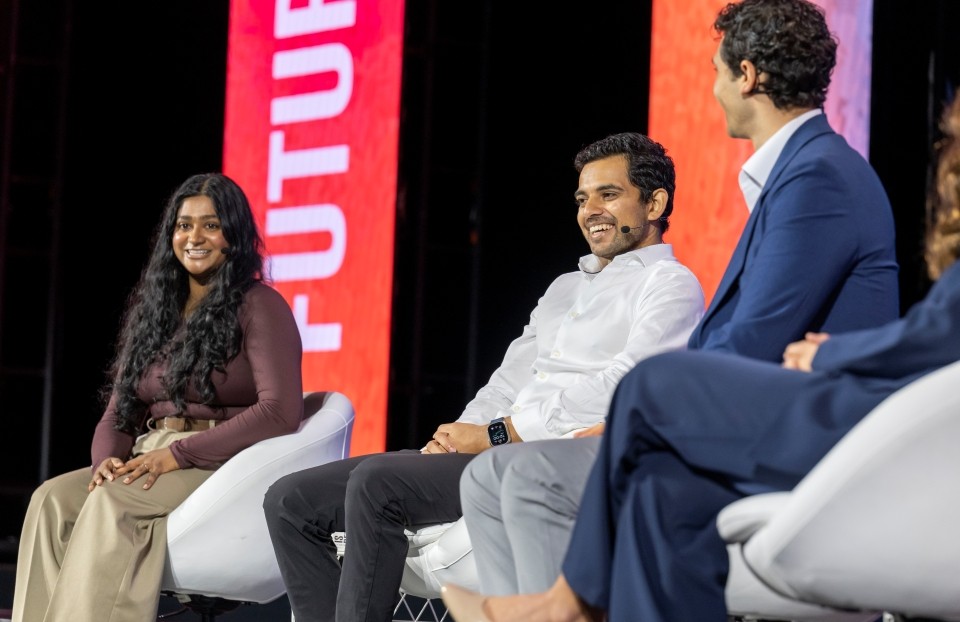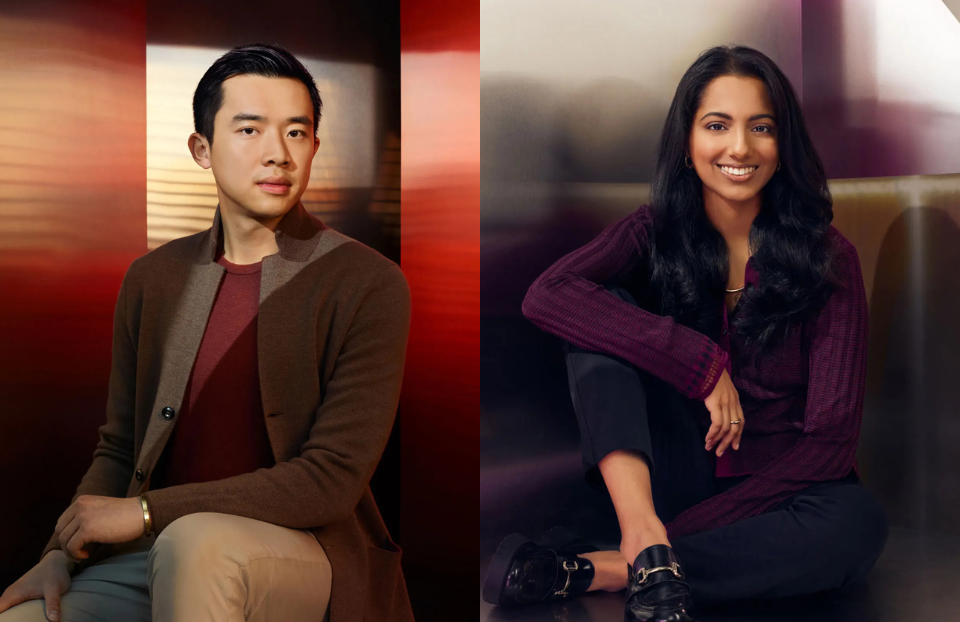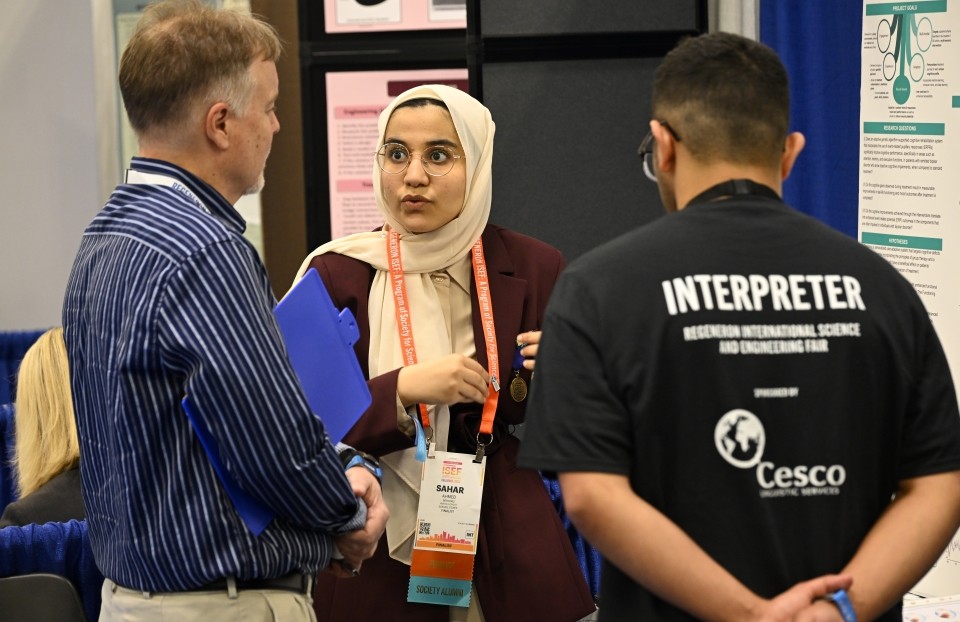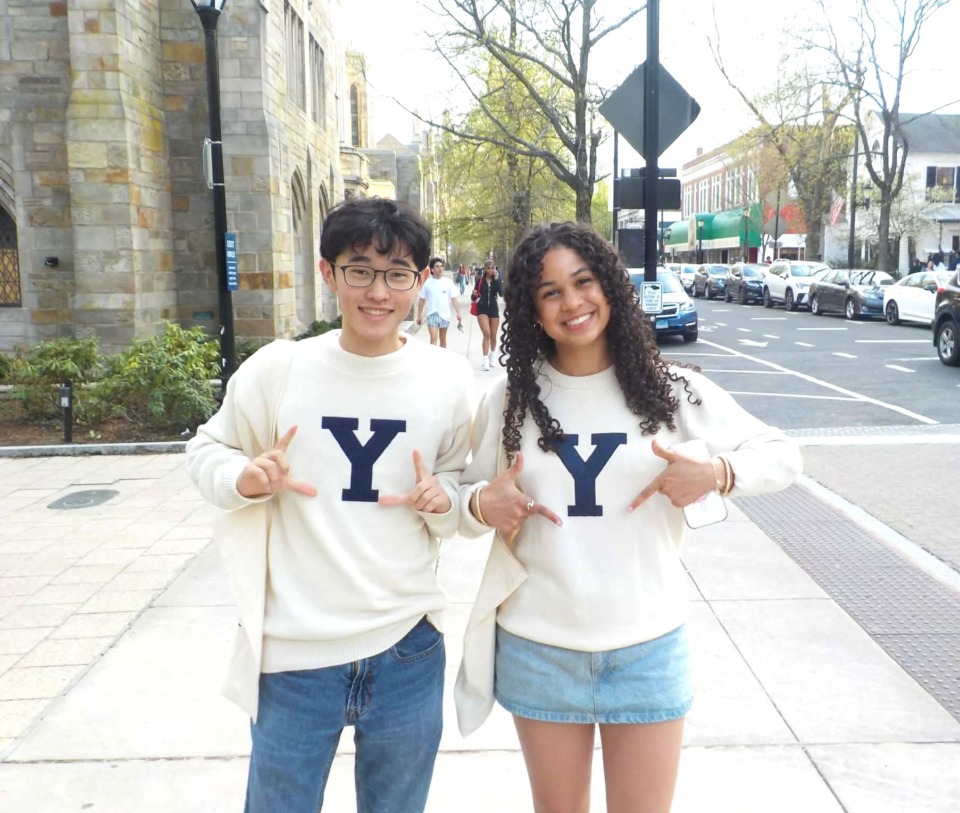Sharing entrepreneurial insights at Regeneron ISEF 2025

Regeneron International Science and Engineering Fair (Regeneron ISEF), the world’s largest pre-collegiate STEM competition, welcomed over 1,600 finalists from more than 60 countries, regions and territories to Columbus, Ohio this year.
Among cherished ISEF traditions, like the Pin Exchange and presenting original research to expert judges across 22 categories, finalists also have the opportunity to hear from scientific and business leaders who once stood in their shoes as ISEF finalists.
At the annual Innovation, Entrepreneurship and Impact Panel, presented by HP this year, the finalists had the chance to ask questions of four ISEF alumni who have gone on to start their own ventures:
- Nivatha Balendra (ISEF 2014) is the Founder & CEO of Dispersa, a clean-tech startup that focuses on offering sustainable alternatives to synthetic surfactants through natural microbe-derived soapy compounds known as biosurfactants.
- Akilesh Bapu (ISEF 2015) is the Founder of DeepScribe, a market leader in ambient AI-powered medical scribe technology.
- Alejandro Fenn (ISEF 2012) is the Co-Founder & COO of Nodestar, which develops conversation-centric AI products for companies across a range of industries, including finance, education and wellness.
- Hannah Herbst (Broadcom MASTERS 2015; ISEF 2016, 2017, 2019; STS 2019) is the Founder & CEO of Golden Hour Medical, whose flagship product, AutoTQ, is the first automated, interactive and reusable tourniquet designed for rapid bleeding control.
The panel was moderated by Maya Ajmera, President & CEO, Society for Science; Executive Publisher, Science News. Answering questions from Maya and the finalists, here are a few insights shared by the panelists.
As a young and successful founder, have you ever encountered skepticism surrounding your age, background or skill? And have you overcome that?
Nivatha: “I think when you’re different, whether it’s because you’re younger or because of your background, it’s natural to feel like you don’t belong. It’s normal to feel that way, but the more diversity there is, the more we’re able to overcome these things together. It’s really important to have conviction in what you do. You’ll get through the bad days, you’ll get through the ups and downs because you focus on the light at the end of the tunnel and say, ‘Well, why did I do this in the first place?’”
What’s the most unconventional source of inspiration that has fueled your drive to innovate, and how do you turn those aha moments into tangible game-changing ideas?
Akilesh: “Some of the interesting places that we get ideas from are hospitals. If you are ever in search of problems to solve, go spend time in a health system. And I don’t mean that in a bad way. I think these doctors, clinicians and stakeholders are taking a lot of time and putting in a lot of effort to make their processes good, but there’s just so many places things can go wrong. I would really encourage going on site, spending time with the customer and really figuring out what their experiences are like in real life.”
What advice would you give to these finalists?
Alejandro: “Recognize that the entrepreneurship journey is a test of your own inner strength. It’s important to take care of yourself. We’ve all been in places where nothing’s working, and it’s easy to catastrophize and kind of let yourself continue to struggle. And that’s normal. That’s how you learn. But just recognize that it’s a journey, you’ve got a new day tomorrow and keep pushing on.”
How do you balance scientific curiosity with practical solutions, and how can young researchers like us best navigate this balance?
Hannah: “This is one of the hardest parts of inventing a new project. At least for me, I always want to make something that has every single possible feature. And I’ll say that our final AutoTQ probably has 10% of the features that we started with. One of the ways we found this balance was by going back to the customer and saying, ‘What do you really need?’ And obviously, everyone’s customers are different. But I would say, always start with the people you want to help, and make sure you’re doing something that meets their needs in the best way.”
You can watch the Innovation, Entrepreneurship and Impact Panel in its entirety on our YouTube channel.


